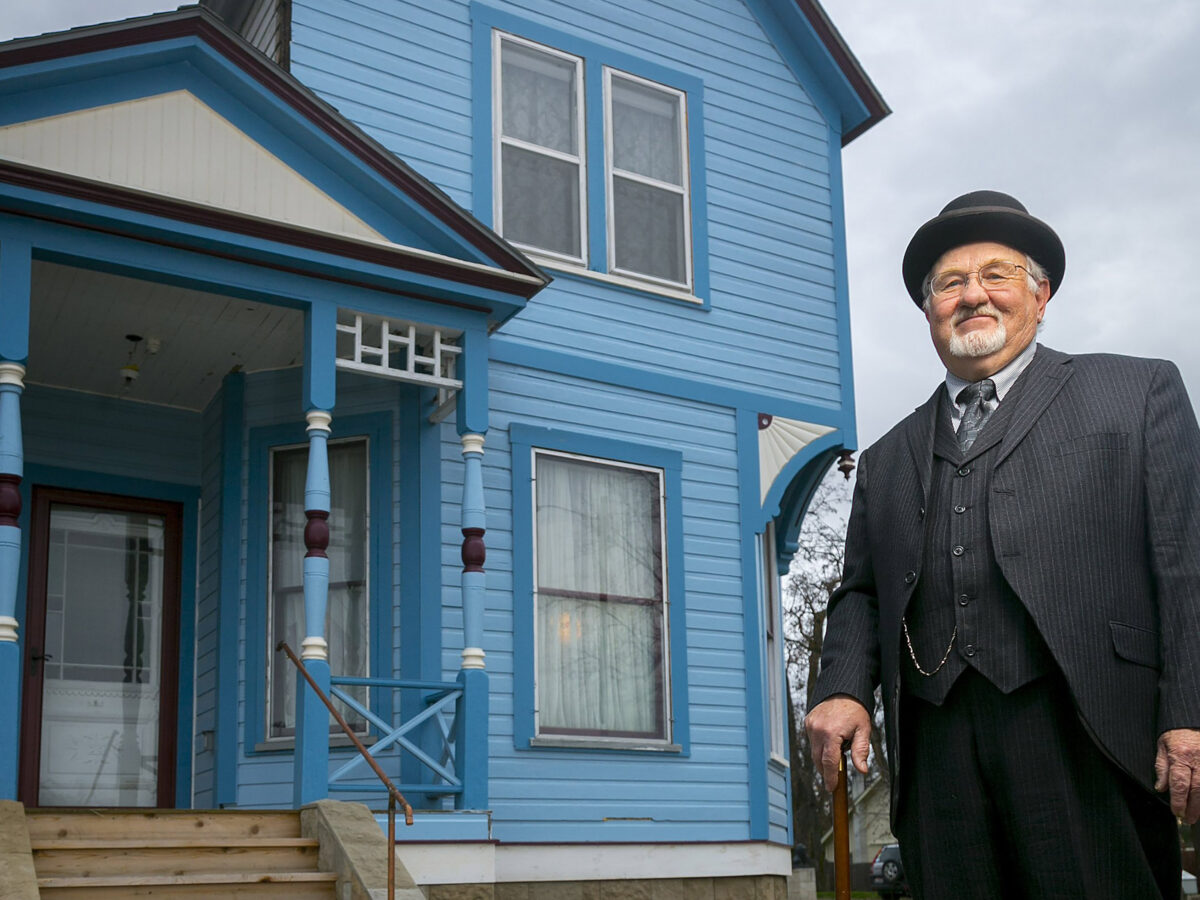Frank Eld ’65

The son of a Finnish immigrant carpenter, Frank Eld ’65 will tell you that carpentry and construction are part of his identity. “Finns are born with an ax in their hands,” he jokes. “We’re natural builders.” But his love for historic preservation and his Finnish heritage runs just as deep; it has ever since he was a teenager growing up in central Idaho’s Long Valley, where his Finnish maternal grandparents homesteaded.
Eld’s fascination with history was inspired by a 19th-century pump organ discovered in a barn on his family’s farm when he was 14. Eld begged his mother to allow him to fix it. Together, they carefully restored the antique instrument, mending its bellows and replacing damaged wood, and got it working again. “Restoring that organ gave me the passion I’ve had my entire life for history, heritage and antiques,” Eld says.
His affinity for historic restoration — he earned a history degree from Columbia University after a postgraduate year at Exeter — has taken him in many interesting directions but none so all-encompassing as his decades-long, piece-by-piece restoration of Roseberry, Idaho, a small Finnish community near his hometown of Donnelly.
A virtual ghost town since the 1940s, Roseberry had dwindled in population since being bypassed by the railroad during the early 1900s. The town’s only remaining commercial building was its circa 1905 general store, which Eld purchased in 1969, not long after graduating from Columbia. He and his wife, Kathy, ran the store as a living history museum for years, often greeting customers in period costume. “I furnished the store like it would have looked in about 1920 to 1930,” Eld says, stocking it with candy, soda, trinkets, old-fashioned toys and Finnish items.
The general store was the first of 25 buildings that Eld and a committed group of volunteers moved to Roseberry from other locations in the Long Valley and then restored. The buildings belong to the Long Valley Preservation Society, which Eld helped found and ran as president for 20 years (he sold the general store to the society several years ago). “I was the mover and shaker,” Eld says. “I was a teacher at the time and spent my summers in Idaho, moving and restoring buildings.” Buildings on site now include a schoolhouse, a blacksmith’s shop, a church and private homes, as well as eight Finnish-style log cabins and a Finnish barn that was dismantled and rebuilt.
The Finnish cabins constructed using square logs, became Eld’s next obsession. Eld has logged thousands of driving miles in his “Finnabago,” a customized Toyota pickup truck with a log cabin on the back, crisscrossing the United States researching Finnish log structures. His fascination with the craft led to his first book, Finnish Log Construction –The Art; he’s compiling research for his second. As a distinguished Finlandia Foundation lecturer, he also speaks about his research at Finnish heritage societies and festivals, dressed in traditional garb, complete with reindeer-hide boots. That’s in addition to recently moving and restoring his current Boise, Idaho, home, an 1893 Victorian, and helping save historic structures across the state from demolition. A self-described “George Washington addict” — his Boise home has a corner devoted to the first president of the United States — Eld is emphatic about the importance of historic preservation. “We can learn all we want about history through books and movies, but if you want to really experience it, you have to visit an original historic site,” he says.
Eld is happy to continue providing links to the past through his research and lectures. “People ask if this is going to be my last restoration project,” he says. “I never say never.”
Editor’s note: This article first appeared in the fall 2018 issue of The Exeter Bulletin.


